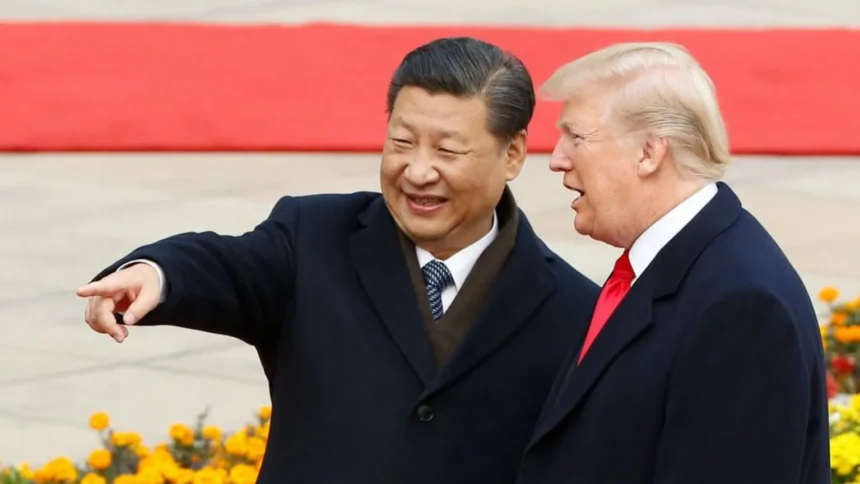WASHINGTON, Oct 10, 2025 — U.S. President Donald Trump announced on Friday an additional 100% tariff on all imports from China, effective November 1, in response to Beijing’s new export controls on critical rare earth minerals and other raw materials. The move, detailed in a Truth Social post, also includes U.S. export restrictions on “any and all critical software,” potentially disrupting global supply chains for technology and defense industries.
Trump described China’s actions as an “extraordinarily aggressive position on Trade,” citing a letter from Beijing that outlined large-scale export curbs starting November 1 on products including rare earth magnets essential for electronics, electric vehicles and military equipment. “There is no way that China should be allowed to hold the World ‘captive,'” Trump wrote, adding that the tariffs would apply “over and above any Tariff that they are currently paying.” Current effective tariffs on Chinese goods average around 40%, according to analysts at Wells Fargo and the Federal Reserve Bank of New York, potentially pushing rates to 140% or higher.
The announcement follows China’s decision earlier this week to tighten export rules, a step experts view as retaliation for U.S. restrictions on advanced semiconductors and other technologies. It risks derailing a fragile trade truce established in May, when both sides agreed to suspend triple-digit tariffs that had nearly halted bilateral trade. U.S. imports from China fell to $194 billion in the first seven months of 2025, down from $239 billion the prior year.
Trump’s post came hours after he threatened “massive” new tariffs and suggested canceling a planned summit with Chinese President Xi Jinping on the sidelines of the Asia-Pacific Economic Cooperation forum in South Korea later this month. At a White House event, Trump indicated the meeting could still proceed, telling reporters he might attend despite the escalation.
Global markets reacted sharply, with the S&P 500 dropping more than 2% — its largest one-day decline since April — as investors feared renewed volatility from the trade war. Cryptocurrency markets also tumbled, with Bitcoin falling to $102,000 and over $9.4 billion in leveraged positions liquidated. On X, users highlighted the sell-off, with one post noting the impact on stocks like SPY and warning of broader economic pain.
The U.S. and China, the world’s two largest economies, have a history of tit-for-tat measures. Beijing previously tightened rare earth exports in response to earlier Trump-era tariffs, prompting outcry from U.S. firms dependent on the materials, which China dominates with over 80% of global supply. Analysts warn that full implementation could lead to empty shelves in the U.S., higher consumer prices and supply disruptions for industries from autos to aerospace.
White House officials have not detailed exemptions, though past actions spared some electronics at lower rates. The administration is also considering controls on airplane parts and other goods. Beijing has yet to respond officially, but experts anticipate countermeasures, potentially targeting U.S. agricultural exports or further mineral restrictions.
The escalation underscores ongoing frictions in U.S.-China relations, including technology transfers and fentanyl concerns. As the November 1 deadline approaches — coinciding with the expiration of temporary tariff relief — stakeholders on both sides brace for potential negotiations or further confrontation.




